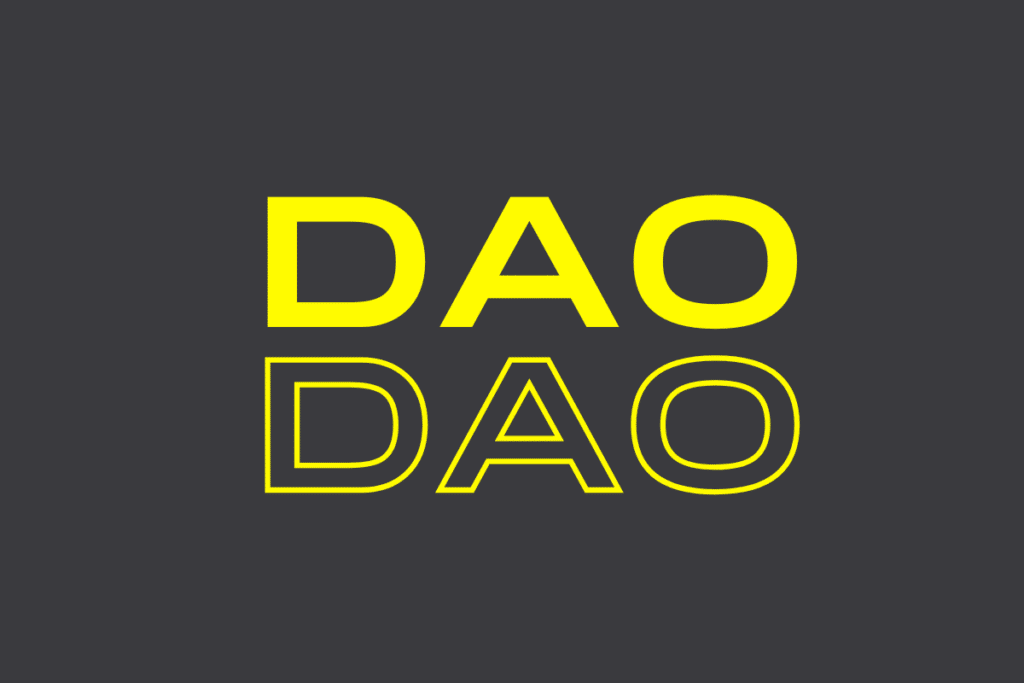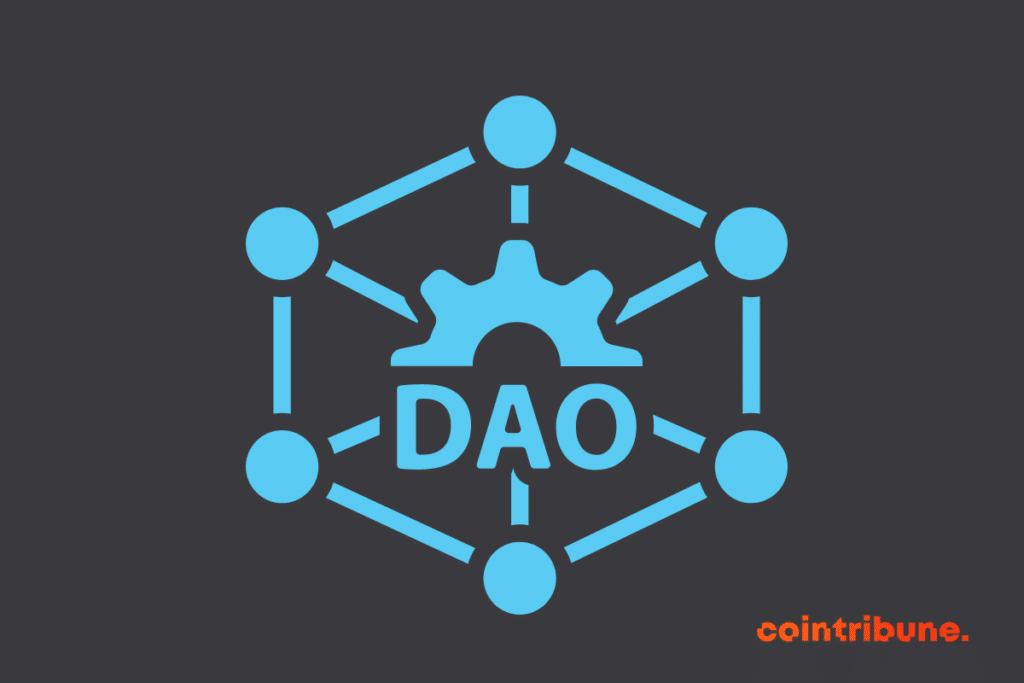How Does Governance Work in a DAO?
Decentralized Autonomous Organizations (DAOs) represent a major innovation in the field of blockchain. They redefine how collective decisions are made and managed. These unique digital entities merge blockchain technology with principles of democratic governance, thereby creating a new paradigm for collaboration and organizational management. But how do they actually work? This article aims to unveil the internal mechanisms of DAOs, offering a deep understanding of their dynamics and potential.

The concept of DAO: what you need to remember
Decentralized Autonomous Organizations, or DAOs, represent a revolution in the way organizational structures are conceived. Based on blockchain, these autonomous entities redefine governance by freeing themselves from traditional hierarchies. In a DAO, the rules are written into a blockchain protocol, often Ethereum, ensuring transparency and immutability. Instead of centralized leaders, it is the members of the DAO who steer the organization, marking a significant shift toward a more democratic and participatory approach.
The different governance models in DAOs
In the world of DAOs, governance comes in several models, each adapted to the specifics of the community and the project. The direct governance model, where each member votes on key decisions, promotes active and equal participation. However, it can be complex to manage in large communities.
On the other hand, representative governance delegates decision-making to elected members, offering efficiency and expertise, but with a risk of centralization of power. Some projects opt for a hybrid model, combining the advantages of both approaches to balance democracy and efficiency. Each model reflects a unique approach to achieving the DAO’s goals while respecting decentralization principles.

The role of tokens and tokenomics
Tokens are important for governance and member engagement in DAOs. They allow holders to participate in votes, directly influencing decisions and the direction of the organization. This active participation strengthens members’ investment in the DAO, creating an environment where every voice matters. Tokenomics, or the economy of tokens, is also crucial. It defines the creation, distribution, and use of tokens, encouraging positive contributions to the community. Mechanisms like staking, where rewards for significant contributions motivate members to invest more. Furthermore, the value of tokens is often linked to the prosperity of the DAO, aligning the interests of members with those of the organization. Thus, in DAOs, tokens are not just simple financial assets, but key tools for collaboration, decision-making, and collective success.
The decision-making process in DAOs
The decision-making process within decentralized autonomous organizations (DAOs) is an element that distinguishes these entities from traditional organizations. Based on the principles of decentralization and democracy, this process reflects the very essence of DAOs, where blockchain plays a key role in facilitating and securing decisions.
Proposal of ideas and projects
The decision-making process in a DAO often begins with the proposal of ideas or projects. Any member of the DAO, holding tokens, can submit a proposal, which is then reviewed by the community. This stage is crucial, as it determines the topics that will be discussed and potentially voted on. Proposals can vary, ranging from technical modifications in the DAO’s protocol to strategic initiatives or partnerships. Transparency is a key aspect at this stage, as all proposals are generally publicly accessible, allowing the entire community to review and discuss them. This openness fosters a culture of collaboration and innovation, where the best ideas can emerge from any member.
Voting system and its functioning
Once a proposal is submitted, it generally goes through a voting phase. The voting system in DAOs is often based on blockchain, ensuring that each vote is recorded transparently and immutably. Token holders have the right to vote proportionally to their participation in the DAO. This method ensures that the decisions made reflect the will of the majority of stakeholders. The vote can be simple or involve more complex mechanisms like quadratic voting, which seeks to balance the influence between small and large token holders. The voting process is crucial, as it represents the democratic voice of the community, ensuring that decisions are made fairly and representatively.
Implementation of decisions
After the vote, the approved decisions are implemented. In a DAO, this step is often managed by smart contracts on the blockchain, so the execution of decisions can be in accordance with the voting results. This automation reduces the risks of human error or manipulation, enhancing trust in the decision-making process. Implementation can involve technical adjustments in the DAO’s protocol, allocation of funds for specific projects, or other actions necessary to realize the approved proposal. The ability to execute decisions quickly and effectively is a major asset of DAOs, allowing for responsiveness and adaptability that is often difficult to achieve in traditional organizational structures.
Conclusion
DAOs embody a significant advancement in organizational governance, merging blockchain technology, democratic participation, and token economy. They redefine collaboration and decision-making norms, emphasizing transparency, equity, and community engagement. These autonomous and decentralized structures illustrate the potential of blockchain to create more inclusive and effective governance systems, where every member actively contributes to collective success. DAOs are not just technological entities, but innovative models for the future of collaborative organization.
Maximize your Cointribune experience with our "Read to Earn" program! For every article you read, earn points and access exclusive rewards. Sign up now and start earning benefits.
The Cointribune editorial team unites its voices to address topics related to cryptocurrencies, investment, the metaverse, and NFTs, while striving to answer your questions as best as possible.
The views, thoughts, and opinions expressed in this article belong solely to the author, and should not be taken as investment advice. Do your own research before taking any investment decisions.